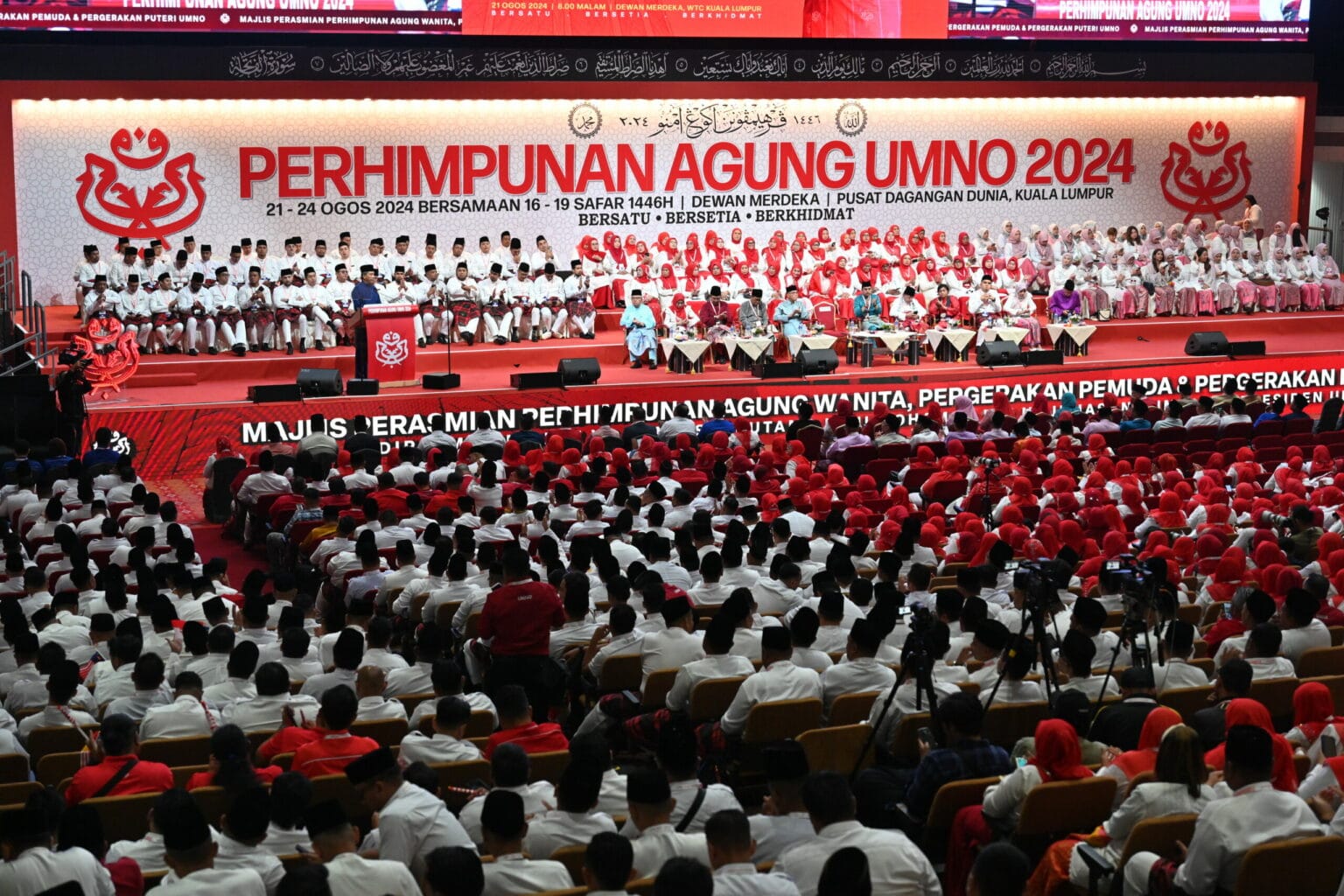UMNO’s future depends on new leadership
The series of scandals, notably the 1MDB scandal implicating former Prime Minister Najib Razak, inflicted severe damage on the party’s reputation. Why did the current leadership remain silent during this tumultuous period?

THE mood at the UMNO general assembly is one of optimism following the recent victory in Nenggeri. However, many recognize that this triumph had little to do with a genuine resurgence of confidence in UMNO.
Few pauses to question what might have motivated the Malay electorate to shift their support back to UMNO since the last general elections.
Media coverage has widely attributed this victory to the charismatic appeal of veteran UMNO leader Tengku Razaleigh Hamzah, who held the seat for ten consecutive terms until he was unseated in the last general election due to prevailing national sentiments.
His return has undoubtedly reignited some of the party’s past glory, but this alone is insufficient for UMNO to reclaim its former stature.
For UMNO to truly renew itself, it must overhaul its leadership—from the President down to the members of the Supreme Council—and distance itself from the vestiges of the old UMNO.
Party in dire straits
As long as the same figures remain at the helm, the electorate will continue to see the party as merely “old wine in a new bottle,” and calls for reform will lack credibility.
What rationale exists for retaining the very leaders who steered the party into dire straits, only to have them now champion the cause of reform?
The President, Deputy President, Vice Presidents, and the entire Supreme Council must take moral responsibility for the party’s parlous state.
They must acknowledge their role in the dismal performance of the last general election and step aside with dignity.
The series of scandals, notably the 1MDB scandal implicating former Prime Minister Najib Razak, inflicted severe damage on the party’s reputation.
Why did the current leadership remain silent during this tumultuous period?
Their deafening silence suggests a self-preserving mentality, leaving the Malaysian electorate, particularly the Malay voters, with no choice but to shift their allegiance to PAS and Bersatu.
Voters perceived these parties as more committed to public service than personal gain, further distancing themselves from UMNO.
With the same leaders entrenched in their positions, why should the Malay electorate consider returning to UMNO?
Losing touch
Moreover, UMNO leaders have been criticized for losing touch with their traditional rural base, leading to a loss of support in these areas.
As many leaders transitioned into urban environments and became wealthy through patronage, they conveniently neglected their grassroots, further alienating voters.
While calls for reform were often made publicly, these leaders were too set in their ways, leading to the alienation of younger voters who felt disconnected from the party’s outdated approach.
It was no secret that the path to wealth often ran through UMNO, with party posts serving as stepping stones.
This culture of self-enrichment, combined with leaders being out of touch with the realities faced by ordinary Malaysians, contributed significantly to UMNO’s downfall in the last general elections.
The perception of taint within UMNO cannot be dispelled unless there is a decisive break from the past. The same individuals who led the party into its current state cannot be the ones to lead it out.
Only a complete renewal of leadership, coupled with a genuine commitment to reform, can restore the trust and support of the electorate. Without this, UMNO’s calls for change will continue to ring hollow.
— This article was first published on BebasNews
